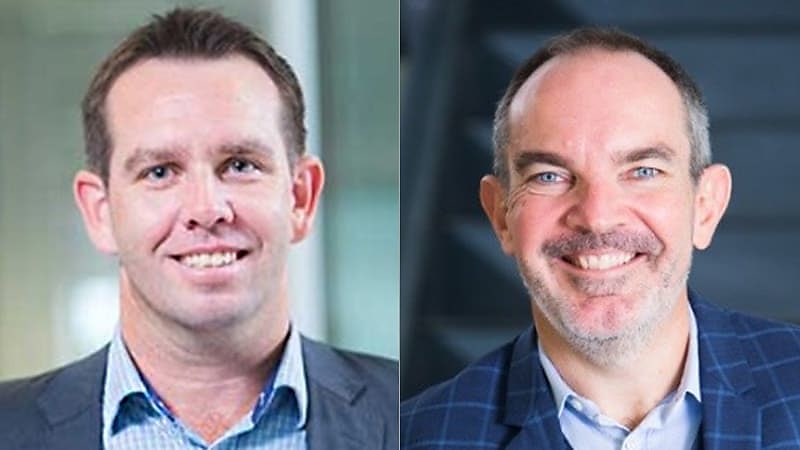Trust deed more critical for BDBNs after Hill v Zuda
With the High Court determining that regulation 6.17A does not apply to SMSFs, BDBNs are entirely centred on trust deeds, according to Cooper Grace Ward Lawyers.
Following the High Court’s decision on Hill v Zuda, Cooper Grace Ward Lawyers partner Scott Hay-Bartlem said that with binding death benefit nominations (BDBN) in SMSFs now entirely based on trust deeds, it has never been more crucial to read thoroughly and comply with the trust deed when compiling BDBNs.
Partner Clinton Jackson noted that while Hill v Zuda is a significant case because it has confirmed that BDBNs are based on trust deeds, it will not prevent new cases from occurring.
“All the cases that we’ve had over the last 10 years are going to continue to occur because they're all focused on drafting problems in trust deeds, and whether the binding nominations comply with them,” Mr Jackson told SMSF Adviser.
Mr Hay-Bartlem and Mr Jackson spoke to SMSF Adviser ahead of their session on the state of play with BDBNs at the Technical Strategy Day 2022 due to take place in October in three capital cities.
During their session, they will address uncertainty around how benefits paid after the death of an SMSF member are classified, explore where case law currently stands on BDBNs and SMSFs and BDBN best practice for clients, and provide tips on navigating estate planning and trust deed traps.
Which document takes precedence?
SMSF Adviser asked the two partners about the debate reignited by the Hill v Zuda decision around whether SMSF trustees should rely on a reversionary pension or BDBN, and which document should take precedence.
In his response, Mr Hay-Bartlem said this would depend on the contents of the trust deed, and as such, urged advisers and their clients to ensure that they do not have inconsistent reversionary nominations or BDBNs.
“The key message about all of this is there are many issues to consider,” he said.
“Working out where your super goes when you die is a big question for estate planning, and that requires coordination of wills, and coordination with pension documents, as well as your binding documents.
“It requires a whole lot of thought. There is no magic answer. You’ve got to look at this whole thing together, and that’s where we see people getting into trouble. They don’t think about whether they’ve done a pension or a reversion.”
Mr Jackson said determining which document takes precedence depends on the client’s priorities. While reversionary pension would take precedence for some clients, this may not be appropriate for others.
“I think the people who want to know which one takes precedence are really looking for a simple solution,” Mr Jackson said.
“What we find is that the people who are really interested in which one takes precedence are the ones looking to do a pension document without thinking about estate planning implications, or do a binding nomination without doing a complete review of someone’s estate planning.
“If you do everything over one complete death benefit planning piece of work and you work with the client around what they want to see happen, you can create a much more comprehensive plan that will work properly for the client.”
Make sure everything is valid
Outlining some of the trust deed traps advisers need to be aware of, Mr Clinton said trustees must ensure that their document is valid and binding on the trustee — especially if there is an issue with the trust deed history.
“It’s all well and good getting deeds updated and working with the deed that you’re currently used to, but if the problem is the trust deed history, that deed is not valid. In that case, everything you do is potentially going to be called into question,” he warned.
“Some of these funds have been around for 20 or 30 years and have had 10 deed updates in their history. With so many legal documents having been prepared by different providers, this could raise many potential issues.”
Mr Hay-Bartlem advised that along with reading the deed closely, it is imperative to “blowtorch” the chain of trustees.
“Look at it really carefully and make sure all of it meets compliance requirements.”
“When we go back and look at the chain of trustees, it’s rare that we can’t pick something apart somewhere that could potentially undo all of the planning.”
To hear more from Scott Hay-Bartlem and Clinton Jackson about how recent case law has impacted BDBNs in SMSF and key considerations for clients regarding decisions on BDBNs, come along to the SMSF Adviser Technical Strategy Day 2022.
The conference will be held on Thursday 6 October at Crown Towers in Melbourne, Friday 14 October at the Four Seasons Hotel in Sydney, and Wednesday 26 October at the Brisbane Convention and Exhibition Centre.
Click here to buy tickets to the conference and secure your spot today!
For more information about the conference, including agenda and speakers, click here.








